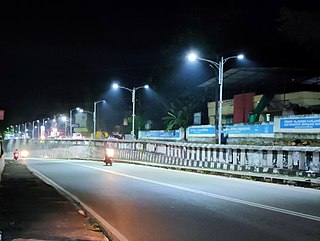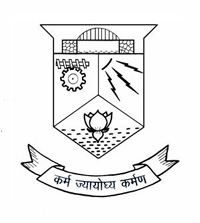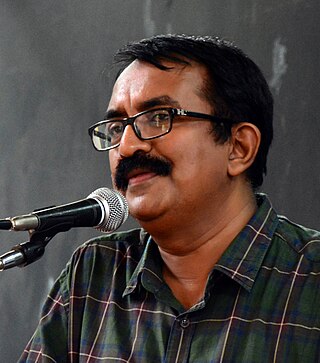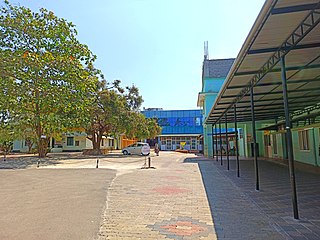
Varkala, IPA: [ʋar̥kala] is a major coastal municipality situated in the northern suburb of Trivandrum, capital city of the Indian state of Kerala. It is the headquarters of Varkala Taluk and important government institutions such as the taluk office, court complex, office of the Deputy Superintendent of Police, Legal Metrology Inspector office, Excise Circle and Range office, RTO, Treasury and Mini civil station are situated in here. It is one among the oldest municipalities of Kerala established on 1980.

Kollam, also known by its former name Quilonpronunciation (help·info), is an ancient seaport and city on the Malabar Coast of India bordering the Laccadive Sea, which is a part of the Arabian Sea. It is 71 km (44 mi) north of the state capital Thiruvananthapuram. The city is on the banks of Ashtamudi Lake and the Kallada river. It is the headquarters of the Kollam district. Kollam is the fourth largest city in Kerala and is known for cashew processing and coir manufacturing. It is the southern gateway to the Backwaters of Kerala and is a prominent tourist destination.

The College of Engineering, Trivandrum, commonly shortened to CET, is an engineering college in the Indian state of Kerala, situated in Thiruvananthapuram. Founded in 1939 by the Travancore monarch Chithira Thirunal, it is the state's oldest technical institution. It currently offers undergraduate, graduate and research programs in eight branches of engineering and has been affiliated to the APJ Abdul Kalam Technological University since 2015, prior to which it was part of the University of Kerala.

The Kerala backwaters are a network of brackish lagoons and canals lying parallel to the Arabian Sea of the Malabar coast of Kerala state in south-western India. It also includes interconnected lakes, rivers, and inlets, a labyrinthine system formed by more than 900 km (560 mi) of waterways, and sometimes compared to bayous. The network includes five large lakes linked by canals, both man made and natural, fed by 38 rivers, and extending virtually half the length of Kerala state. The backwaters were formed by the action of waves and shore currents creating low barrier islands across the mouths of the many rivers flowing down from the Western Ghats range. In the midst of this landscape there are a number of towns and cities, which serve as the starting and end points of backwater cruises. There are 34 backwaters in Kerala. Out of it, 27 are located either closer to Arabian Sea or parallel to the sea. The remaining 7 are inland navigation routes.

Madathil Vasudevan, popularly identified as M. V. Devan, was an Indian painter, sculptor, writer, art critic and orator. Besides his artistic works, he was also known for his architectural designs for a number of cultural institutions as well as for his contributions in founding Kerala Kalapeetom, Kochi-based cultural organization, Malayala Kalagramam, an art village in New Mahe and Kalagramam, another art village in Kollam. A former chairman of the Kerala Lalithakala Akademi, he was a recipient of several honours including the Raja Ravi Varma Puraskaram of the Kerala Lalithakala Akademi, the Vayalar Award and the Mathrubhumi Literary Award.

Kulathupuzha is a town in the east part of Kollam district of Kerala, India. It is one of the important pilgrim spots linked with the legend of Sabarimala. Kulathupuzha is also the birthplace of the Malayalam music legend Raveendran. Kulathupuzha is the source of the Kallada river, Thenmala Dam(KIP) is located on this river. As declared by Governor Arif Mohammad Khan, Kulathupuzha panchayat is the first in India to have achieved Constitution-literacy.

Gopalan Nair Shankar, popularly known as G. Shankar, is an architect from Kerala, India. He advocates the use of locally available materials, sustainability, eco-friendliness and cost effectiveness. He founded the Habitat Technology Group, Thiruvananthapuram, in 1987 and as of 2012, serves on a number of boards. He did his architecture studies (B.Arch) from College of Engineering, Trivandrum and later did M.S. from Birmingham School of Architecture, UK and postgraduate diploma in journalism. He has also won 3 national awards for green architecture, slum resettlement and eco city design.. His attitude to "green architecture" has gained him a reputation as the "people's architect". Shankar was awarded the Padma Shri by the Government of India in 2011.

Tourist Resorts (Kerala) Ltd or (TRKL) is a Government of Kerala undertaking under Kerala Tourism Department, established in August 1989 to promote tourism investment and to develop Tourism infrastructure in the Indian state of Kerala. TRKL was conceived to identify tourism infrastructure needs of the state and bridge any identified gaps. Kerala is today growing at an amazing pace in tourism, adhering to the principles of indigenousness, environmental sustainability and community participation. Kerala's beaches, hill stations, backwaters, wildlife sanctuaries, historical monuments, etc. attract foreign as well as domestic tourists.
Centre of Science and Technology For Rural Development (COSTFORD) is a Thrissur city-based organisation that gives technological assistance to people in alternative building technology. The organization strives to change the social, economic and political position of the poor by providing low-cost and eco-friendly housing technology using participatory, transparent and gender-sensitive processes. COSTFORD's headquarters are in Thrissur, and it operates from another 15 sub-centers, 14 in Kerala and 1 in Gurgaon.
Rahul Mehrotra is Founder Principal of architecture firm RMA Architects of Mumbai + Boston, and is Professor of Urban Design and Planning and Chair of the Department of Urban Planning and Design at the Harvard Graduate School of Design (GSD) in Cambridge, Massachusetts.
UNESCO Asia Pacific Heritage Awards are given with as the strategic purpose of UNESCO with in the region Asia Pacific. The objective is to motivate the protection of Cultural Heritage sites, which are initiated by any individual organization under private sector or institutional organization.

The Sports Hub, Trivandrum, commonly known as Greenfield International Stadium, and formerly known as Trivandrum International Stadium, is a multi-purpose stadium in Kerala, used mainly for cricket. The stadium is located at Kariavattom in Thiruvananthapuram city, Kerala, India. It was built on 36 acres of land leased by the Kerala University for ₹94 lakh (US$146,527.23) per year for a period of 15 years. It is India's first DBOT model outdoor stadium. The Greenfield Stadium became India's 50th international cricket venue on 7 November 2017 when it hosted a T20I against New Zealand. On 1 November 2018, the venue hosted its first ODI. The Greenfield International Stadium is the main venue for the Kerala cricket team.

Banasura Hill Resort is a nature resort in Wayanad District of North Kerala, India; located 37 kilometres (23 mi) away from Kalpetta, the district headquarters. It stands at an altitude of 3,200 feet (980 m) above sea level on a 35 acres (14 ha) plot amidst the mountains of the Western Ghats declared as one of the traditionally preserved sites in the world by UNESCO.

Nedungolam or Nedumgolam is the Northern border town of Paravur municipality in the Kollam district of Kerala state, India. Nedungolam is very near to the world-famous-wetland in Kollam district, Polachira, which is a favorite destination for migratory birds. A census conducted on 2003 reveals that over 26,000 birds belonging to 37 species are visiting or living in the Polachira wetlands.

The Bishop Jerome Institute or BJI or BJGI is an institution situated in Kollam city of Kerala, India. It is one among the AICTE approved engineering and management colleges situated inside the city limit of Kollam.
National Highway 66, commonly referred to as NH 66, is a mostly 4 lane 1,608 km (999 mi) long busy National Highway that runs roughly north–south along the western coast of India, parallel to the Western Ghats. It connects Panvel to Cape Comorin (Kanyakumari), passing through the states of Maharashtra, Goa, Karnataka, Kerala and Tamil Nadu.

Transport in Kollam includes various modes of road, rail and water transportation in the city and its suburbs. State-owned Kerala State Road Transport Corporation buses, private buses, Indian Railways, state-owned Kerala State Water Transport Department boats & ferry, taxis and auto rickshaws are serving the city of Kollam. The city had a strong commercial reputation since the days of the Phoenicians and Romans. Ibn Battuta mentioned Kollam Port as one of the five Indian ports he had seen during the course of his twenty-four year travels.

The Raviz Kollam, also known as The Raviz Ashtamudi, is a five-star hotel on the banks of the Ashtamudi lake in the city of Kollam, India. The hotel is owned by the Raviz Hotels & Resorts company and was designed by the noted Indian architect Eugene Pandala, known for his commitment to environmental sustainability. The Raviz has the usual characteristics of a five-star hotel, including many rooms, suites, private swimming pools, etc. Actors Shahrukh Khan and Mohanlal inaugurated the hotel on 19 August 2011.

Benny Kuriakose was born in Kerala, India. He made his mark in architectural conservation and the design of new buildings, taking his roots from the vernacular architecture of South India. He is known for designing structures which are built from natural materials such as timber, stone and brick. He has practiced mostly in Chennai and Kerala. He runs a consultancy firm in Chennai.
Vikas Dilawari is an Indian conservation architect who has restored at-risk monuments and heritage buildings in Mumbai, including the Victoria Terminus, Rajabai Clock Tower, Dr. Bhau Daji Lad Museum, Wellington Fountain and Christ Church, Byculla. 16 restoration projects carried out by his team have been recognised by the UNESCO Asia-Pacific Awards for Cultural Heritage Conservation, including the 2019 work on the Flora Fountain, which was designed by architect Richard Norman Shaw and completed in 1864.












































